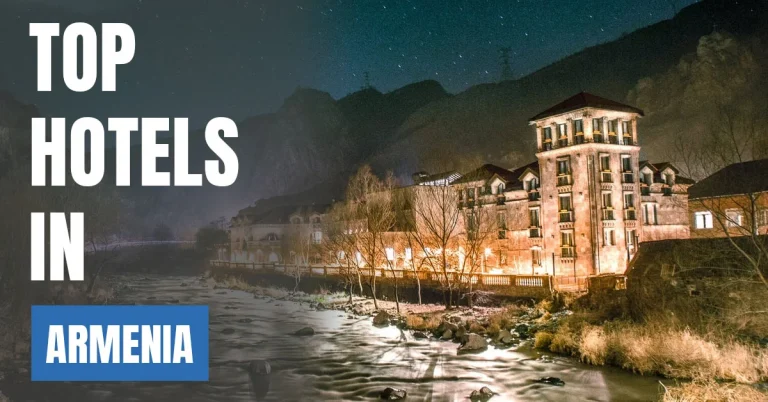Public Holidays in Finland 2026 – National & Finnish Public Holidays

Finland observes a set of national public holidays that reflect its Christian heritage, national identity, and cultural traditions. These holidays are legally non-working and recognized across the country, with banks, public offices, and many businesses closed. Some holidays are observed on fixed dates, while others vary according to Easter.
Overview of Public Holidays in Finland
The public holidays in Finland include Christian holidays such as Good Friday, Easter, and Christmas, as well as national days like Independence Day and Midsummer. Midsummer Eve (the day before Midsummer Day) is also widely treated as a de facto holiday in many sectors.
List of Public Holidays in Finland (2026)
| Holiday | Date (2026) | Day | Remarks / Significance |
|---|---|---|---|
| New Year’s Day | January 1 | Thursday | First day of the Gregorian year |
| Epiphany (Loppiainen) | January 6 | Tuesday | Christian feast of the Epiphany |
| Good Friday | April 3 | Friday | Christian observance before Easter |
| Easter Sunday | April 5 | Sunday | Resurrection of Christ (Christian) |
| Easter Monday | April 6 | Monday | Christian holiday following Easter Sunday |
| May Day (Vappu / Labour Day) | May 1 | Friday | Workers’ Day and spring celebration |
| Ascension Day | May 14 | Thursday | Christian feast 40 days after Easter |
| Whit Sunday (Pentecost) | May 24 | Sunday | Christian celebration of Pentecost |
| Midsummer’s Eve | June 19 | Friday | De facto holiday in many sectors |
| Midsummer Day (Juhannus) | June 20 | Saturday | Official national public holiday |
| All Saints’ Day | October 31 | Saturday | Christian tradition honoring saints |
| Independence Day (Itsenäisyyspäivä) | December 6 | Sunday | Commemorates Finland’s declaration of independence |
| Christmas Eve | December 24 | Thursday | Often treated as holiday / partial closure |
| Christmas Day | December 25 | Friday | Christian celebration of Jesus’ birth |
| Second Day of Christmas (St. Stephen’s Day) | December 26 | Saturday | Public holiday following Christmas Day |
List of Public Holidays in Finland (2025)
| Holiday | Date (2025) | Day | Remarks / Significance |
|---|---|---|---|
| New Year’s Day | January 1 | Wednesday | First day of the Gregorian year |
| Epiphany (Loppiainen) | January 6 | Monday | Christian feast of the Epiphany |
| Good Friday | April 18 | Friday | Christian observance before Easter |
| Easter Sunday | April 20 | Sunday | Resurrection of Christ (Christian) |
| Easter Monday | April 21 | Monday | Christian holiday following Easter Sunday |
| May Day (Vappu / Labour Day) | May 1 | Thursday | Workers’ Day and spring festival |
| Ascension Day | May 29 | Thursday | Christian feast 40 days after Easter |
| Whit Sunday (Pentecost) | June 8 | Sunday | Christian celebration of Pentecost |
| Midsummer’s Eve | June 20 | Friday | De facto holiday in many sectors |
| Midsummer Day (Juhannus) | June 21 | Saturday | Official national public holiday |
| All Saints’ Day | November 1 | Saturday | Christian tradition honoring saints |
| Independence Day (Itsenäisyyspäivä) | December 6 | Saturday | Commemorates Finland’s declaration of independence |
| Christmas Eve | December 24 | Wednesday | Often treated as holiday / partial closure |
| Christmas Day | December 25 | Thursday | Christian celebration of Jesus’ birth |
| Second Day of Christmas (St. Stephen’s Day) | December 26 | Friday | Public holiday following Christmas Day |
Note: Some holidays like Midsummer’s Eve are not always legislated as public holidays but are widely observed in practice.
Public Observance & Closures
On official public holidays, government services, schools, and banks close across Finland. Many businesses also close early or remain shut on holiday eves such as Christmas Eve and Midsummer’s Eve.
Religious & Cultural Significance
Christian holidays reflect Finland’s Lutheran heritage, while Midsummer is one of the country’s most important cultural celebrations, marked by bonfires, sauna traditions, and gatherings in nature. Independence Day is a solemn national observance with flag ceremonies, concerts, and candle lighting in homes.
Frequently Asked Questions (FAQs)
How many public holidays does Finland observe each year?
Finland typically observes around 13–15 public holidays each year, including national and Christian observances.
Is Midsummer’s Eve a public holiday in Finland?
Midsummer Day is an official public holiday, while Midsummer’s Eve is widely treated as a non-working day in many sectors.
Does Finland move holidays that fall on weekends?
No. Finnish public holidays generally remain on their calendar dates and are not shifted, except for holidays linked to Easter.
How is Independence Day celebrated in Finland?
Independence Day on December 6 is observed with flag ceremonies, official events, concerts, and the tradition of lighting candles in windows.
Conclusion
Public holidays in Finland combine religious tradition, national pride, and strong cultural customs. From Easter observances to the unique celebration of Midsummer, these holidays play a central role in Finnish life and identity.
Also Explore: Public Holidays in Fiji






